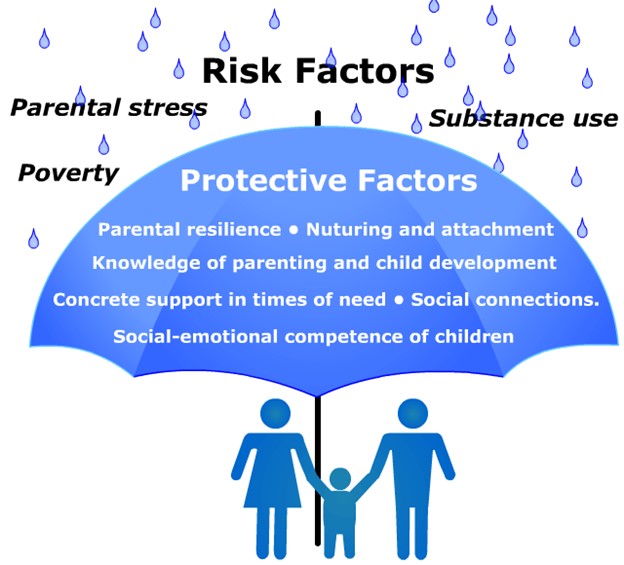Risk Factors and Consequences of Child Abuse and Neglect
- Child abuse and neglect can occur in any family, regardless of socioeconomic status, race, ethnicity, religion, or culture
- However, some factors may increase the likelihood or severity of maltreatment, such as:
- Child factors: age, gender, disability, temperament, behavior, or special needs
- Parent or caregiver factors: history of abuse or neglect, mental illness, substance abuse, domestic violence, stress, poor parenting skills, unrealistic expectations, or social isolation
- Family factors: marital conflict, divorce, separation, death, poverty, unemployment, homelessness, or lack of social support
- Community factors: neighborhood violence, crime, discrimination, lack of resources, or cultural norms that condone violence or neglect
- The consequences of child abuse and neglect can vary depending on the type, frequency, duration, and severity of maltreatment, as well as the child’s age, developmental stage, resilience, and coping skills3
- Some of the possible short-term and long-term consequences include39:
- Physical consequences: injuries, bruises, burns, fractures, head trauma, organ damage, impaired growth and development, chronic pain, disability, or death
- Psychological consequences: emotional distress, fear, anger, guilt, shame, sadness, depression, anxiety, post-traumatic stress disorder, dissociation, low self-esteem, poor self-image, attachment problems, trust issues, or suicidal thoughts or behaviors
- Behavioral consequences: aggression, violence, delinquency, criminality, substance abuse, self-harm, eating disorders, sexual problems, risky sexual behaviors, teen pregnancy, or prostitution
- Social consequences: impaired social skills, poor peer relationships, isolation, withdrawal, difficulty in school or work, homelessness, or intergenerational transmission of abuse or neglect
- Child abuse and neglect can also have significant economic costs for society due to the increased need for health care, social services, education, criminal justice system involvement, and productivity losses

Nursing Test Bank
Quiz #1: RN Exams Pharmacology Exams
Quiz #2: RN Exams Medical-Surgical Exams
Quiz #3: RN Exams Fundamentals Exams
Quiz #4: RN Exams Maternal-Newborn Exams
Quiz #5: RN Exams Anatomy and Physiology Exams
Quiz #6: RN Exams Obstetrics and Pediatrics Exams
Quiz #7: RN Exams Fluid and Electrolytes Exams
Quiz #8: RN Exams Community Health Exams
Quiz #9: RN Exams Promoting Health across the lifespan Exams
Quiz #10: RN Exams Multidimensional care Exams
Naxlex Comprehensive Predictor Exams
Quiz #1: Naxlex RN Comprehensive online practice 2019 B with NGN
Quiz #2: Naxlex RN Comprehensive Predictor 2023
Quiz #3: Naxlex RN Comprehensive Predictor 2023 Exit Exam A
Quiz #4: Naxlex HESI Exit LPN Exam
Quiz #5: Naxlex PN Comprehensive Predictor PN 2020
Quiz #6: Naxlex VATI PN Comprehensive Predictor 2020
Quiz #8: Naxlex PN Comprehensive Predictor 2023 - Exam 1
Quiz #10: Naxlex HESI PN Exit exam
Quiz #11: Naxlex HESI PN EXIT Exam 2
Questions on Risk Factors and Consequences of Child Abuse and Neglect
Correct Answer is A
Explanation
<p>Reason: Neglect is the failure to provide for a child's basic physical, emotional, educational, or medical needs. Neglect may cause poor hygiene, malnutrition, failure to thrive, or developmental delays.</p>
Correct Answer is A
Explanation
<p>Reason: The nurse should not pressure the client to disclose the details of the abuse or make her feel that she has to tell everything to get help. This may make the client feel violated or overwhelmed and retraumatize her.</p>
<p>Reason: The nurse should not say something that threatens or intimidates the parents for neglecting their children. This may make the parents feel fearful, hostile, or distrustful and hinder the cooperation or collaboration with the nurse.</p>
<p>Reason: The nurse should not state that children who are abused or neglected may have normal academic performance and cognitive abilities. This is incorrect because children who are abused or neglected may have poor academic performance and cognitive abilities. For example, a child who has diffic
Search Here
Related Topics
- Stages of physical, cognitive, social and emotional development from infancy to adolescence - Child Abuse and Neglect
- Developmental milestones and screening tools - Child Abuse and Neglect
- Factors affecting growth and development - Child Abuse and Neglect
- Interventions to promote optimal development - Child Abuse and Neglect
- Conclusion - Child Abuse and Neglect
More on Nursing
Free Nursing Study Materials
Access to all study guides and practice questions for nursing for free.
- Free Nursing Study Trials
- Free Nursing Video tutorials
- Free Nursing Practice Tests
- Free Exam and Study Modes
- Free Nursing Revision Quizlets
